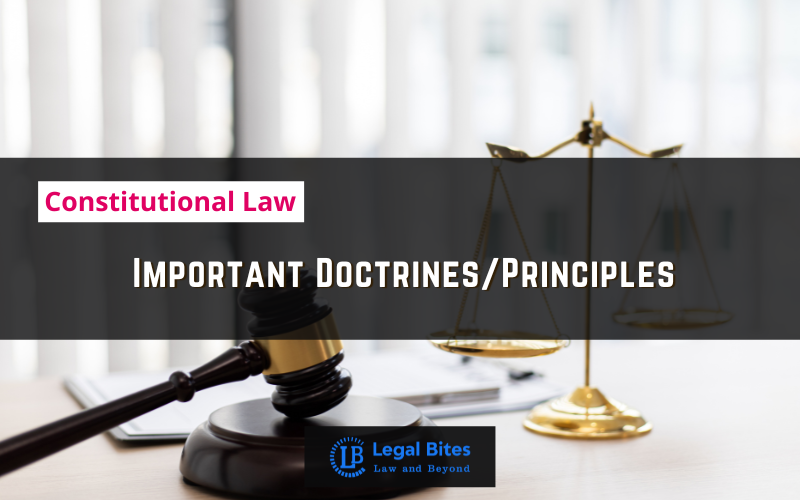Right of Equality before Law and the Equal Protection of Laws in the Indian, Constitution has been interpreted to prohibit discrimination....Comment....
Find the answer to the mains question of Constitutional Law only on Legal Bites.;

Question: Right of Equality before Law and the Equal Protection of Laws in the Indian, Constitution has been interpreted to prohibit discrimination but permit classification. Comment on this statement and point out the basis on which such classification may be founded. Substantiate your answer with case law. [BJS 1980] Find the answer to the mains question of Constitutional Law only on Legal Bites. [Right of Equality before Law and the Equal Protection of Laws in the Indian, Constitution...
Question: Right of Equality before Law and the Equal Protection of Laws in the Indian, Constitution has been interpreted to prohibit discrimination but permit classification. Comment on this statement and point out the basis on which such classification may be founded. Substantiate your answer with case law. [BJS 1980]
Find the answer to the mains question of Constitutional Law only on Legal Bites. [Right of Equality before Law and the Equal Protection of Laws in the Indian, Constitution has been interpreted to prohibit discrimination but permit classification. Comment on this statement and point out the basis on which such classification may be founded. Substantiate your answer with case law.
Answer
Article 14 of the Indian Constitution states that "the State shall not deny to any person equality before the law or the equal protection of the laws within the territory of India." This Article comprises two components:
Equality before the law: Originating from English law, it implies the absence of any special privileges for individuals and the equal subjection of all classes to the same laws.
Equal protection of the laws: Derived from the American Constitution, it emphasizes treating equals equally and allows for reasonable classification based on intelligible criteria.
Principles Under Article 14:
- Article 14 prohibits class legislation but allows for reasonable classification, provided the classification:
- Is based on an intelligible differentia.
- Has a rational nexus to the object of the legislation.
- The principle does not mandate uniformity but ensures that individuals in similar circumstances are treated equally.
In the case of State of West Bengal v. Anwar Ali Sarkar (1952), it was held Article 14 aims to prevent discriminatory or hostile legislation targeting specific individuals or classes. It enunciates the principle of equality in the administration of justice. In Srinivas Theatre v. State of Tamil Nadu (1976), the court described equality before the law as a dynamic concept that includes both the absence of privileges and the obligation of the state to strive for social and economic equality through laws.
The Karnataka High Court in K. Veeresh Babu v. Union of India (1994) upheld the exemption of Sikhs from wearing helmets, ruling that the provision was a reasonable classification based on religious practices and did not violate Article 14.
The Supreme Court struck down a classification in pension rules that discriminated between retirees based on arbitrary dates, deeming it violative of Article 14. [D.S. Nakara v. Union of India (1983)]
Article 14 embodies the essence of equality, ensuring that all individuals in similar circumstances are treated alike while prohibiting arbitrary or discriminatory actions. It does not require identical treatment for all but ensures reasonable and non-arbitrary laws.
Important Mains Questions Series for Judiciary, APO & University Exams
- Constitutional Law Mains Questions Series Part-I
- Constitutional Law Mains Questions Series Part-I
- Constitutional Law Mains Questions Series Part-II
- Constitutional Law Mains Questions Series Part-IV
- Constitutional Law Mains Questions Series Part-V
- Constitutional Law Mains Questions Series Part-VI
- Constitutional Law Mains Questions Series Part-VII
- Constitutional Law Mains Questions Series Part-VIII
- Constitutional Law Mains Questions Series Part-IX
- Constitutional Law Mains Questions Series Part-X



